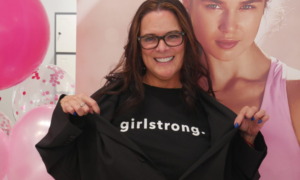Bartram Nason and Ginia Sweeney
ATLANTA — Assistant District Attorney April Ross knows the statistics on gun violence and domestic violence in Georgia. She’s also experienced it first hand. In April 2014, Ross filed for divorce from her husband Tranard McConnell, who had been her high school sweetheart. They had married after she finished law school.
The next day, he ambushed her as she sat in the car with a friend, shooting them both multiple times. Both survived, but Ross became a quadriplegic. She lost the use of her legs and has limited mobility of her hands.
Ross, now 37, returned to work at the Fulton County District Attorney’s office a year and a half after the attack. She was assigned to the domestic violence trial and policy unit, reinvigorating the office’s focus on it and advocating for legislative change at the state level.
“I have no illusions about eliminating 100% of crime, gun violence,” she said in a February 2018 interview. “I just think that you can take measures to reduce.”
Firearms were used in 72% of domestic violence fatalities in Georgia in 2018. Nationally, federal laws prohibit domestic violence offenders from owning firearms. Ross is working to have matching legislation passed in Georgia so it would apply at the local level. Such measures have failed so far to gain traction in the state legislature.
In her case, she said, “I never was afraid of [her husband], physically afraid of him. … How could I not see something like that coming?” She now recognizes there were other signs of the power imbalance in the relationship. “You can be in an abusive relationship where someone is exerting power and control over you, and never be physically threatened.”
She strives to educate others on how to recognize signs they might be in danger, and the steps they can take — including safety planning and orders of protection — to safeguard themselves.
Ross also volunteers at the Shepherd Center, the spinal cord rehabilitation center in Atlanta where she recovered after her injury. She counsels other victims of gun violence, showing them that while life will never be the same after injury from a shooting, it’s possible to live a full, happy life. Though Ross says it is difficult to tell the story of her most traumatic day over and over, she recognizes it is a powerful narrative and hopes she can use it to effect positive change.































